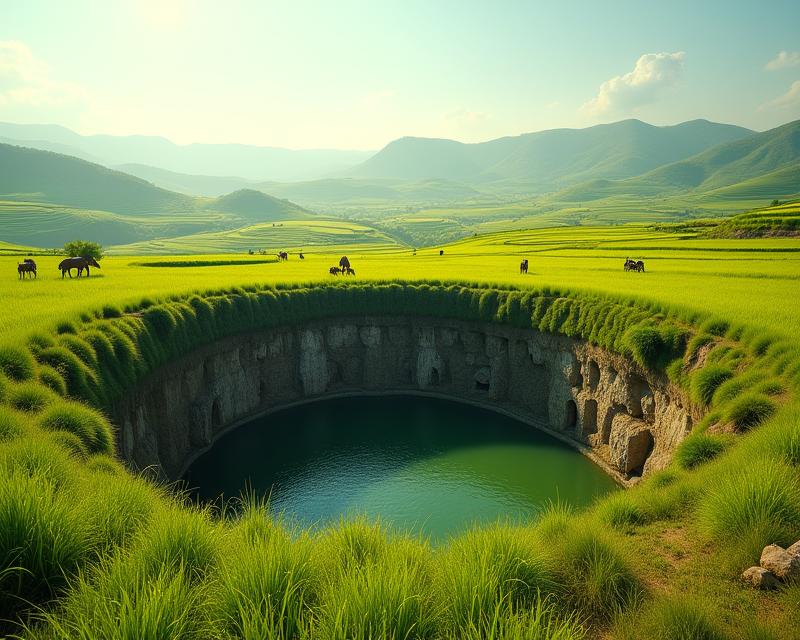Ancient Wisdom: Stepwell Farming & Water Conservation
Publish in Sustainable Farming el 21/07/2025 20:38
Ancient Wisdom: Stepwell Farming & Water Conservation
Water is the lifeblood of any farm, and for centuries, farmers have developed ingenious methods to conserve and utilize this precious resource. One of the most remarkable examples of this ingenuity comes from ancient India, where stepwell farming flourished. Stepwells aren't just impressive architectural feats; they represent a sophisticated system of water management that allowed communities to thrive in arid regions. Understanding these methods offers valuable lessons for modern farmers facing increasing water scarcity.

What are Stepwells?
Stepwells are essentially underground reservoirs, often constructed with intricate staircases leading down to the water level. They were designed to collect and store rainwater, groundwater, and seasonal runoff. These weren't simple wells; they were multi-level structures that allowed access to water even during dry periods. The design incorporated features like ventilation shafts to keep the water cool and prevent contamination. They were community hubs, providing not just water but also a place for rest and social interaction.
How Stepwell Farming Worked
The brilliance of stepwell farming lies in its holistic approach to water management. Farmers would utilize the stored water for irrigation, often employing techniques like flood irrigation and raised beds to maximize water efficiency. The stepwells also helped recharge groundwater levels, creating a sustainable water cycle. Crop selection was also key – farmers favored drought-resistant varieties and practiced crop rotation to maintain soil health. Furthermore, the communities surrounding stepwells often implemented water rationing and conservation practices, ensuring equitable access to this vital resource. This system wasn't just about getting water; it was about respecting and preserving it.
Lessons for Today's Farmers
While modern technology offers many solutions, the principles behind stepwell farming remain incredibly relevant. Here are some key takeaways:
- Water Harvesting: Implement rainwater harvesting systems on your farm. Even small-scale collection can make a difference.
- Efficient Irrigation: Consider drip irrigation or micro-sprinklers to deliver water directly to plant roots, minimizing water loss through evaporation.
- Soil Health: Focus on building healthy soil through composting, cover cropping, and no-till farming. Healthy soil retains more water.
- Water Conservation Practices: Monitor water usage, identify leaks, and implement water-wise landscaping.





